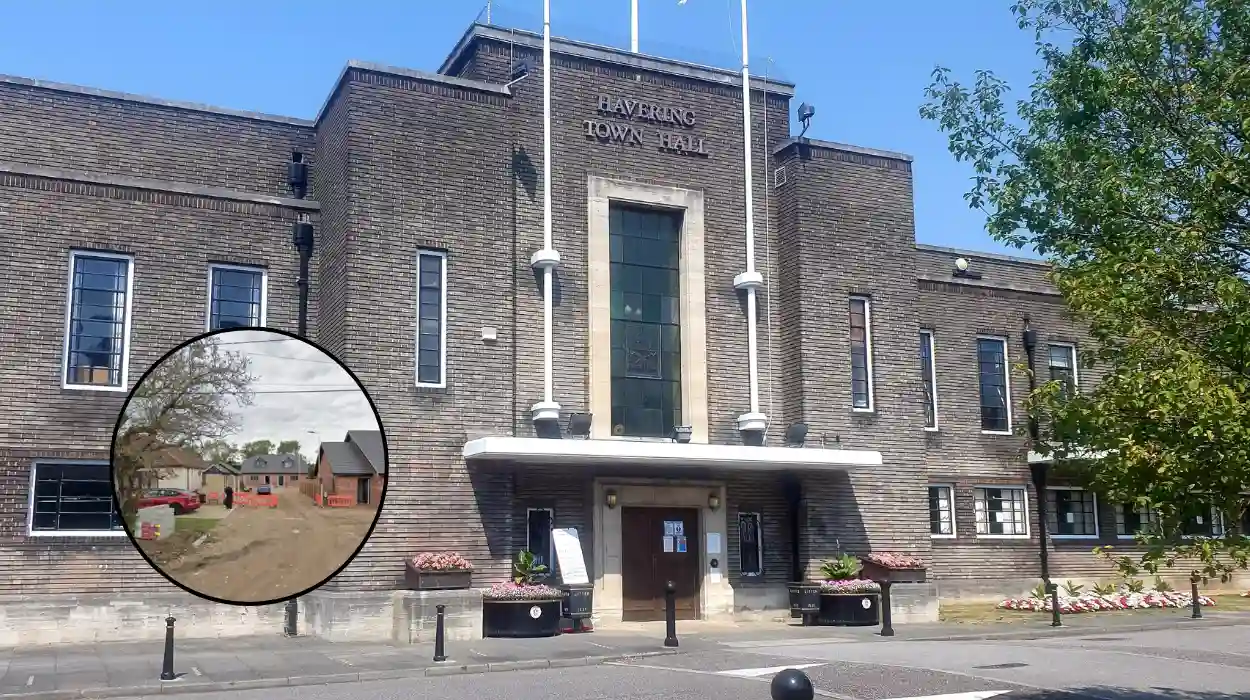Key Points
- Havering Council refused retrospective planning permission for Raymond Lam to continue operating multiple properties at 3-6 Far Way, Hornchurch, as Houses in Multiple Occupation (HMOs).
- The affected properties include two large HMOs housing up to seven people each.
- Initial plans for new homes were approved on appeal in 2021, but the subsequent use deviated from those approved plans.
- The use of the properties as HMOs was declared to be “unlawful” by the planning officer.
- The refusal was made following a planning officer’s report citing “overconcentration” of HMOs in the area leading to significantly increased comings and goings.
- The planning officer also noted inadequate parking provisions for the numbers of occupants involved.
- The application was called in for review by Councillor Laurance Garrard of the Emerson Park ward.
- No representations were received from neighbouring properties about the application.
What was the decision of Havering Council regarding the Far Way HMO planning application?
As reported by the Romford Recorder in October 2025, Havering Council has refused the planning application made by Raymond Lam to secure retrospective planning permission to continue running the properties at 3-6 Far Way, Hornchurch, as Houses in Multiple Occupation (HMOs). The properties in question include several large HMOs, two of which can accommodate up to seven residents each.
The Council’s decision follows a detailed planning officer’s report which identified significant deviations from the conditions and use originally approved in 2021 on appeal. The report labelled the use of these properties as HMOs as “unlawful,” with the works undertaken diverging from those sanctioned in the original approval.
Why were the Far Way HMOs considered unlawful?
According to the planning officer’s report cited by the Romford Recorder, the works carried out on the properties “deviated” from the approved plans submitted in 2021. The changes involved the conversion and use of the homes as HMOs without proper authorisation or compliance with the approved planning permission.
This retrospective application sought to legalise these modifications and the operation of the properties as HMOs, but the Council rejected the request due to the breaches identified in terms of planning and use.
What were the main concerns raised by the planning officer about the HMO use?
The planning officer concluded that the four properties at Far Way, operating as HMOs, created an “overconcentration” of such properties in the area, which adversely affected the local community. This overconcentration generated “significantly higher levels of comings and goings” compared to what would be expected from typical single-family dwellings.
In addition to this impact on the neighbourhood’s character and residential amenity, the planning officer highlighted the failure of the application to demonstrate “adequate levels of parking” for the number of occupants residing in these HMOs, exacerbating potential local parking congestion and traffic issues.
Who called in the application for review and were there any objections from neighbours?
The refusal decision followed the application being called in by Councillor Laurance Garrard, who represents the Emerson Park ward, as detailed by the Romford Recorder. No other representations or objections were received from neighbouring properties concerning the application.
Councillor Garrard’s involvement underscores the importance of local democratic oversight in planning decisions, especially where concerns about housing density and community impact arise.
What does refusing retrospective HMO planning permission mean for the applicant?
For Raymond Lam, the refusal of retrospective planning permission means that the properties at 3-6 Far Way cannot lawfully continue to be operated as HMOs under the current arrangements. The Council’s decision effectively mandates a halt or reversal of the unauthorised use unless a new compliant application is submitted and approved.
The refusal also signals Havering Council’s stricter stance on planning enforcement and control over the proliferation of HMOs, aiming to manage housing quality, neighbourhood balance, and infrastructure pressures more effectively.
How does this decision fit into the broader context of HMO regulation?
The decision by Havering Council aligns with an increasing focus across many London boroughs to manage the density and impact of HMOs in residential areas. Councils often face the challenge of balancing housing supply needs with controlling the local adverse effects of overcrowding, parking strain, and community disruption caused by excessive HMOs.
By refusing this retrospective application, Havering Council is enforcing planning regulations designed to prevent overconcentration of HMOs, which can alter the character of neighbourhoods and reduce overall living standards.
